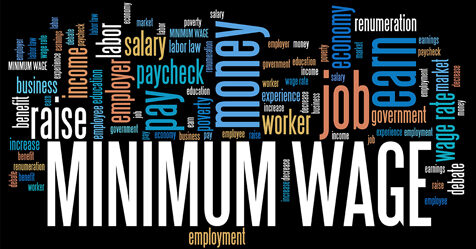In the April 2013 issue of Cleaning & Maintenance Management, I discussed the importance of obtaining periodic business valuations in preparation for the sale of a business.
These periodic valuations allow the seller to see how healthy the business is at a specific point in time.
If the valuation is strong, and the owner sees the value as one he or she would be pleased to receive, movement towards a sale of the business frequently will occur.
On the other hand, if the valuation is one where the future cash flows are lower than desired, the continuation of periodic valuations should continue to occur in order to guide the seller towards a better sale price.
In this article, I will expand upon this idea and review business valuations on a deeper level.
Defining Value
Business valuations are based upon the fair market value (FMV) of your company.
All business valuations revolve around Revenue Ruling 59-60.
This ruling centers on the FMV of companies with regards to determining a valuation of a privately held business.
The fair market value of a business is defined by Revenue Ruling 59-60 as “the amount at which the property would change hands between a willing buyer and willing seller, when the former is not under any compulsion to buy, and the latter is not under any compulsion to sell, both parties having reasonable knowledge of relevant facts.”
What this means in laymen’s terms is that the buyer market for a business does in fact exist and that these buyers desire to buy the business at a fair price and not a price that is greatly below or above this fair price point.
For example, if the seller is motivated to sell because of business distress, the traded value will likely not be at FMV because the seller is an unwilling seller in that he or she is under some compulsion and “needs” to sell rather than “wants” to sell.
This type of seller is often defined as “motivated.”
At the opposite end of the spectrum is a price offered by a competitor who is attempting to gain market share or perhaps trying to enter a new territory.
This type of buyer is willing to pay a premium price above the FMV for the business due to the fact that the business is worth more to this particular buyer because of the synergies expected to be realized after the purchase.
The synergies in this scenario result in a premium value that is considered an “investment value” and, as is the case with the motivated seller, the value is for a specific buyer rather than a hypothetical buyer.
Taxation
The FMV of a business or asset(s) have a number of taxation applications.
Valuations used for donations and estate and gifting to family members rely upon FMV for taxing purposes.
The use of FMV is mandatory in all business appraisals for federal tax purposes.
The IRS says that the cost of assets for tax purposes in situations like gifting are based on the cost of the property to you or the actual selling price received by the qualified organization.
This cost may be the best indication of its FMV.
The determination of FMV in these valuations is different from the determination of FMV for the purpose of a sale of a company as described in the previous paragraph.
No Fixed Formula
The business valuation expert does not determine the FMV via a fixed formula.
This is an important fact to note as this is the main reason that it is important to engage a certified business valuator as they have the knowledge base to apply the appropriate factors to derive the final valuation.
For example, donated equipment should not be evaluated at a fixed rate of the cost of new replacement equipment since the equipment being valued might be in non-operating condition and have little value beyond the sale of parts.
The analyst in this situation must then use factors such as comparables, liquidation value, etc., and the strength of the buyer market to originate conclusion of value.
A Foundation
In closing, a business valuation is a foundation to work upon in the consideration of the value of your business and/or assets.
The FMV is the source of a private company valuation.
This value is based off of a fair price paid in an open market and not to a specific buyer.
Determining the FMV of a business is crucial in many tax situations such as divorce and gifting to family members.
As noted, a business valuation is used by the IRS to determine the fair market value of an asset for tax purposes and it is imperative that a certified valuation expert who knows the rules and laws for the tax implications be engaged in order to obtain the value at which your taxes should most accurately be based upon.
The more a company, individual or estate understands the basics of business valuations the more the entity can understand the value put forth by the expert.
The basic valuation knowledge offered in this article provides the reader with the power of knowing how to value their business and/or asset and, in turn, with this knowledge the business owner is now in the power position of negotiations.


